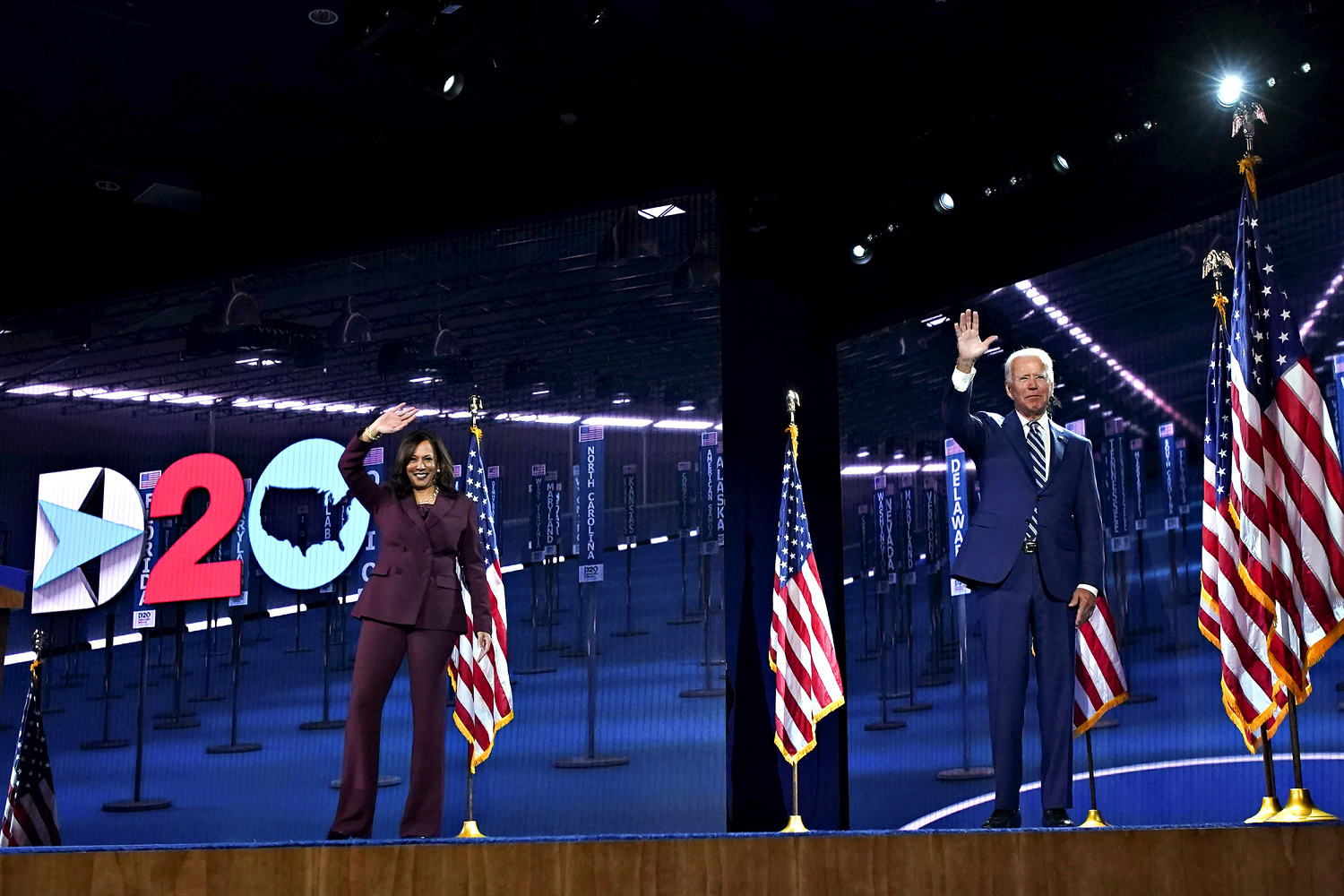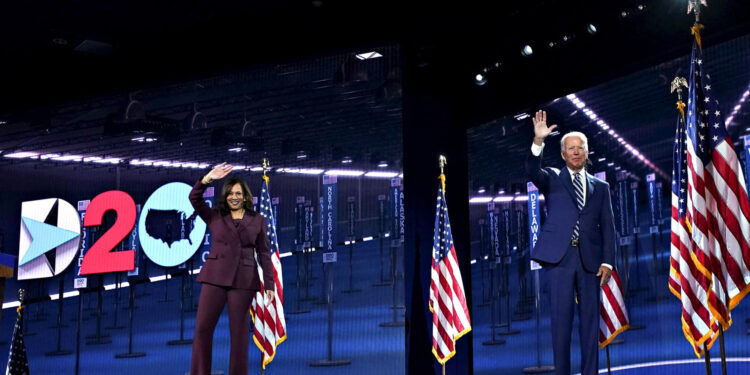
The situation that Democrats find themselves in is unprecedented in modern presidential history: a major party presumptive deciding to leave the race in the summer before the election before the official nomination.
But the good news for Democrats is — as in most cases, there’s already a rule for that.
As unprecedented as President Joe Biden’s decision to exit the race is, there are already established procedures in Democratic Party rules, campaign finance laws and state code to govern most of the key questions facing Democrats, and the country, right now.
Some of it’s untested and could be the subject of lawsuits down the road. But here’s a look at a few of those pressing questions, and what we know about the answers:
Does Biden need to release his delegates? No
This is not a thing in the Democratic Party, just the Republican Party. We delved into it more deeply here, but the quick summary is: The only command to delegates under current convention rules is to “in all good conscience reflect the sentiments of those who elected them.”
After a primary process in which Biden won virtually every contest and faced no true opposition, those “sentiments” were easy to predict. Now, that means those Democratic delegates can do whatever they want. That said, Biden’s campaign played a big role in picking the delegates, choosing supporters for their loyalty. So it’s likely that Biden’s endorsement of Harris will have some sway with these members. But it’s not a directive.
Does Harris get his delegates automatically? No
See above. But since delegates aren’t officially bound, there’s no mechanism here that would give Harris control of them. She has to win them the old-fashioned way — convincing them to support her.
So far, a handful of state delegations are getting behind her, along with most of the state party leadership. But it’s up to every individual when they cast their vote, not any directive from party leadership.
Can Harris take over Biden’s campaign coffers? She just did
The presidential campaign, the entity officially known as Biden for President, filed paperwork changing the name of its organization to Harris for President with Kamala Harris as the authorized candidate. While the situation has never arisen in modern history, and the law is untested, most campaign finance experts believe that Harris has the right to Biden’s campaign’s bank account, which ended June with almost $96 million in the bank. Harris’ name had been on all the previous filings as she and Biden shared a campaign account, leading most to believe that she can take it over without any problems.
Those supporting the view that Harris has the right to the money include Campaign Legal Center President Trevor Potter (a former Republican chairman of the FEC who served as counsel to the late GOP Sen. John McCain’s presidential campaigns), Hans A. von Spakovsky, a senior legal fellow with The Heritage Foundation, and Dara Lindenbaum, a sitting FEC commissioner who often serves as a swing vote.
It’s possible someone tries to argue she shouldn’t have the right. But the bottom line is: She just did, and most experts believe she’s in the clear.
Do Democrats have to do a virtual convention still? Unclear.
Remember, Democrats are currently planning to do a virtual convention sometime in the first week of August, an idea born of concerns about Ohio’s previous deadline for parties to submit the names of their nominees for the ballot. That deadline had been Aug. 7, but while Ohio passed a fix into law to move the deadline back, it doesn’t go into effect until Sept. 1. So technically, the Aug. 7 date will come and go with the old law still on the books, leaving the Democrats technically in violation of that law.
By the beginning of September, they’d no longer be in violation. But Democrats supportive of the virtual roll call argue they don’t want to leave themselves open to a lawsuit that would cast into doubt whether they can secure a spot on Ohio’s ballot.
Whether they decide to move forward with the virtual convention is a different story. NBC News is reporting that two sources familiar with the matter say the plan is still to expect a virtual roll call within the next two weeks. That would allow for the party to have a nominee heading into Chicago to let Democrats focus on their message at the convention without a question who will be the nominee.
When will Democrats pick their nominee? TBD
If the party is unified around Harris and it proceeds with current plans for a pre-convention virtual roll call, then Harris would be formally nominated before Aug. 7. But the roughly 200-member Convention Rules Committee, which governs the nominating process, did not finalize that plan in a meeting Friday.
The Rules Committee could decide to push the roll call back to the Convention or even vote to move up sooner, it meets on Wednesday.
Could someone else still run against Harris? Yes, but no one has yet
Nearly all of the usual suspect big-name Democrats with national ambitions have endorsed Harris, including Gavin Newsom to Gretchen Whitmer. But someone could still run against her and sources close to West Virginia Sen. Joe Manchin, who recently left the Democratic Party and became an independent, say he is considering it.
How would someone run against Harris? They need to act fast
All it takes to be in considered for the Democratic nomination at the convention is a petition with signatures from at least 300 delegates (with no more than 50 from any one state).
But the process does not allow draft efforts (the candidate has to sign the petition themselves) so someone would have to declare their intentions to seek the party’s nomination very soon and no one has yet. And a delegate can only sign one petition.
Do you need to be a Democrat to run against Harris?
Technically yes. According to the 2024 Call to the Convention, presidential candidates must sign a pledge that they are “a bona fide Democrat whose record of public service, accomplishments, public writings and/or public statements affirmatively demonstrate that the candidate is faithful to the interests, welfare and success of the Democratic Party of the United States, and will participate in the Convention in good faith.”
Yes, Bernie Sanders ran without changing his party affiliation. But if he had won, it would have been very unlikely the party would have disqualified him on this if the will of the voters was to have him as their nominee.
Will Democrats have ballot access issues with Biden not on the top of the ticket?
Republicans are making hay of this but it doesn’t appear like much will come of it. National party rules decide who gets to be the nominee, and there hasn’t been a convention yet, so Biden was not the nominee in any official capacity. Even in states with deadlines that seemed to conflict with the late Democratic convention date, most told NBC News in recent months that they would allow (and have allowed during repeated instances where parties have had late conventions) the party to tell them who it ultimately chooses to be its nominee once it’s decided at the convention.
Only Alabama and Ohio were pushing back on this, and both states’ governors signed legislation to push back nominee certification deadlines (but obviously, the Ohio situation remains somewhat of a live ball, as explained above).
If they wanted to replace their nominee after they’re officially selected, that could get more complicated. But the bottom line is, there was no official Democratic presidential nominee yesterday, and there will not be one tomorrow. So under party rules, not much has officially changed.







